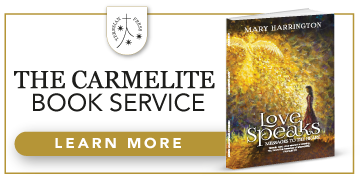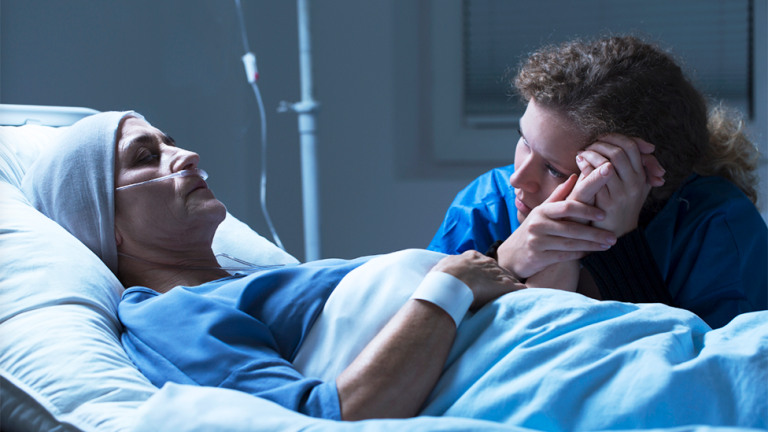Sorry, no records were found. Please adjust your search criteria and try again.
Sorry, unable to load the Maps API.
As we head into the month of February Pope Francis has issued a very timely announcement that his prayer intention for the month of February is the terminally ill and their families.
His invitation is apposite as ‘assisted dying’ campaigners here in the UK are making a concerted push to get legislation onto the statute books that will decriminalise euthanasia. Terminally ill TV star Dame Esther Rantzen, The Daily Express newspaper and campaign group Dignity in Dying have joined forces in a crusade to push an online government petition over the 100,000 votes mark, which will trigger a full Commons debate on the issue.
Rantzen and her campaigners are convinced that the majority of MPs and the British public are behind allowing so-called ‘assisted dying’ to become law – though there are many who believe the moral mood of the country is otherwise.
Sarah Wootton, chief executive of charity Dignity in Dying, said this week: “The thousands of signatures flooding into the petition are proof that support for the legalisation of assisted dying is stronger than ever. People demand change.”
However, Catholic former Conservative MP Ann Widdecombe is among those who believe that assisted suicide “must not be allowed to win.”
Although Miss Widdecombe has said she shares deep sympathy for Rantzen in her battle with terminal cancer, the situation called for “thinking as well as feeling”.
Miss Widdecombe has said that the Commons had “good reason” to reject the issue in 2015, as “it is impossible to introduce adequate safeguards to protect the mentally ill, disabled and the frail elderly” and she cited an example from Canada where a patient asked for a stairlift and was offered a lethal injection.
Former Cabinet Minister Nadine Dorries – whose terminally ill husband had a peaceful death at home – has also stated that doctors should never be allowed to kill their patients.
“The truth is that there is no need for anyone to have a bad death or to die in pain today,” argues Mrs Dorries. “Medication is sophisticated and palliative care services are down to the Government, the NHS and the local care commissioning boards which manage palliative care funding.
“By contrast, the end of life medication administered at Dignitas, a drug taken in 60ml of water and swallowed, does not, to my mind, result in a peaceful end.”
Speaking to the Daily Telegraph just yesterday, the performance poet John Cooper Clarke echoed the feelings of many when he said: “I’m sure people have the most heartbreaking tales to tell but extreme cases make for bad legislation. The whole issue is literally a matter of life and death, and in Europe, where it’s legal, we’re already seeing a mission creep where people are ending their lives for things like incurable depression.
“Just because someone is feeling a bit hopeless that’s no reason to kill them or help them to kill themselves, and to make it worse it’s dressed up in the language of human rights, as if there were some kind of liberation to it.
“I just don’t see how helping people die improves life as we know it.”
The Rantzen campaign, pushed on by the Daily Express, has already reached 88,000 votes and is open until July, so we can assume that the petition will cross the 100,000 mark and trigger a full parliamentary debate.
Issuing a heartfelt appeal in the paper this morning, 83 year old Rantzen, who has terminal stage 4 lung cancer, said: “Must terminally ill patients travel alone to Switzerland to obtain the gentle, peaceful death we would surely all choose? Our best hope is that our petition reaches its goal of 100,000 signatures which will ensure it is debated in Parliament. We are so close now.”
Of course 100,000 supporters is really just a smidge more than a Wembley football match, so it’s worth reminding legislators if and when they do have to debate this issue that it hardly constitutes the British public making an overwhelming demanding for urgent change.
No doubt any debate will necessarily focus on the legal and constitutional ramifications of any possible change to UK law, but where this particular issue will become difficult and complex is in rationalising the human experiences around terminal illness and death, especially as it’s something that almost all of us will have to confront, or have already confronted, in some form or another.
If we look at cancer as the most common cause of early death, Macmillan Cancer Support estimates that there are currently three million people living with cancer in the UK, and this is expected to rise to 3.5 million by 2025, four million by 2030, and 5.3 million by 2040. On average someone is diagnosed with cancer every 90 seconds, in the UK and in 2019, around 167,000 people died from cancer, an average of 460 people every day. Other terminal illnesses are showing similar percentage rises, so it’s an issue that is embedded in the human experience here in the UK, as well as everywhere else in the world.
What’s more revealing about figures released recently by Macmillan is the degree to which increasing cancer rates have impacted on HNS cancer services, with tens of thousands of people waiting for too long for diagnosis or vital treatment, especially since the Covid pandemic. So the debate about assisted dying is unavoidably going to be nuanced by public perceptions about the nature and efficacy of terminal care, the ability of the relevant organisations to provide it, and fiscal concerns about the ability or not of government to handle and support an increasing number of terminally ill citizens.
For most people, the near collapse of our NHS, and the unbearable strain on groups that are picking up the tab such Macmillan, Marie Curie, Sue Ryder and Hospice UK does not give much comfort that a terminal diagnosis is going to be a gentle journey “into that good night”.
Of course, the heart of this debate is not a mere matter of human rights and liberties, but our seeming inability to accept the inevitability of the human condition. Whatever we have achieved in life, everything is a journey towards the moment of our death. As Catholics we have God waiting on the other side, so the end of life may be a dreadful wrench from those we love, but we have not only the promise of something more, but the assurance of eventual reunion.
As is often said, those we have lost are not gone, but just waiting in another room.
One can’t help but feel a degree of sympathy for those not blessed with such a belief. I cannot personally imagine what it must be like to think that one’s death is the end, and that a life in this world is all you have. If I did I would probably – like Esther – want my final chapter to read as decently as the rest of it.
Our Catholic Church provides some remarkable and humbling examples of how best we might engage with our own death, especially when it’s cruelly unexpected. St Thérèse of Lisieux (1873-1897) endured a long and painful decline with tuberculosis, passing away just aged 24; little Nellie Organ (1903-1908) was also taken by a dreadful tubercular decline, aged just 4, and more recently young 15 year old Carlo Acutis (1991-2006) succumbed to debilitating leukemia – his last words to his mother were “Mom, don’t be afraid. Since Jesus became a man, death has become the passage towards life, and we don’t need to flee it. Let us prepare ourselves to experience something extraordinary in the eternal life.”
Whilst the Rantzen petition is making regular headlines due to her longstanding public profile, other assaults on the sanctity of human life are heading our way with far less of a fanfare, but potentially far greater consequences.
Up in Scotland the Dem MSP for Orkney, Liam McArthur will any week now bring forward to the Scottish parliament a member’s bill seeking to allow terminally ill Scots who meet certain criteria to access lethal drugs. The Assisted Dying for Terminally Ill Adults (Scotland) Bill would introduce the right to an assisted death if you are terminally ill, but still mentally competent.
In the Republic of Ireland an Oireachtas Joint Committee is scrutinising a Bill from Gino Kenny TD, which proposes allowing doctors to administer lethal drugs to some patients.
Here in the UK parliament the Rantzen initiative has been well timed to apply pressure to enquiries into assisted dying that have shifted noticeably over the past decade.
Parliament voted against proposals to allow lawful assistance with suicide in September 2015 when the House of Commons rejected the Assisted Dying (No.2) Bill. More recently, the House of Lords voted against an amendment to the Health and Care Bill (now Act), which would have required the Health Secretary to lay before Parliament a draft Bill on assisted dying.
However, the government’s Health and Social Care Committee launched an inquiry to examine different perspectives in the debate on assisted dying/assisted suicide in December 2022 at which the Care Minister said that “if the will of Parliament is that the law on assisted dying should change, then Government would not stand in its way”.
Once the Rantzen petition reaches its 100,000 target, this debate will move from being a legislative enquiry to a public debate, undoubtedly fuelled by endless examples of the need to alleviate human suffering set against the imagined threats of allowing our government agencies to decide when our life might end.
The temptation to allow competent individuals to take on the role of God is completely understandable. My own father died a dreadfully slow and fairly undignified death from lymphoma, aged just 46. Watching his slow but relentless decline, and having him watch in turn our agony as he gradually slipped away from us, forced us all to tread that unbearably dark path between desperately clinging on to a loved one, and just wishing that God would take them home. At the end, after his fourth heart attack, his doctors made a decision not to resuscitate – itself a fine balance of a profound oath to keep the patient alive, set against not prolonging their suffering and that of their loved ones. As anyone who’s had to travel this road will tell you, death after a terminal illness is a profoundly difficult whirlpool of despair – and relief.
Death is also the one experience that we will all have to confront eventually, so really it’s just a matter of timing, and the particular mechanism God has chosen for us. But one thing is for sure, how we handle our death is just as important as how we’ve handled our life.
In my late father’s case, pretty much all that could have been done for him was, though in 1983 we knew a lot less than than we do now – the chemotherapy was brutal, the hospital care was elementary, there were few terminal care services and we know that if his particular lymphoma had occurred today, his chances of survival would probably have been 90% plus. We couldn’t fault the NHS and all the other people who tried to make those last few months as bearable as possible, but my late father’s final journey was defined by the level of relatively impressive services and expertise that were available at the time.
What’s really fundamental here is that in 1983 medical knowledge and the mechanisms of terminal care were rudimentary, but in many respects they exceeded what we can provide today. It’s a dreadful irony that research into critical diseases has progressed so much over recent decades that so many more illnesses are potentially survivable, but sustained underinvestment in our healthcare services means the ability to deliver this expertise has diminished shamefully.
If one were to pry we’d almost certainly find that much of the fear driving the assisted dying debate is not about death itself or even the disease, but the fear of having to go into the dark without a bearable level of care and compassion.
As Pope Francis noted in his February prayer intention: “when some people talk about terminal illnesses, there are two words they often confuse: incurable and un-‘carable.’ But they are not the same.”
“Healing,” he acknowledges, “is not always possible, but we can always care for the sick person, caress them … every sick person has the right to medical, psychological, spiritual and human assistance.”
As legislators across the UK and beyond face up to the difficult questions that the euthanasia lobby is driving towards them, I hope and pray they will emphasise this particular human dilemma is not so much about whether or not those who can’t confront death should have the right to end their life, but rather what can we provide as a society to make these inevitable journeys more bearable.
Joseph Kelly is a Catholic writer and theologian
































